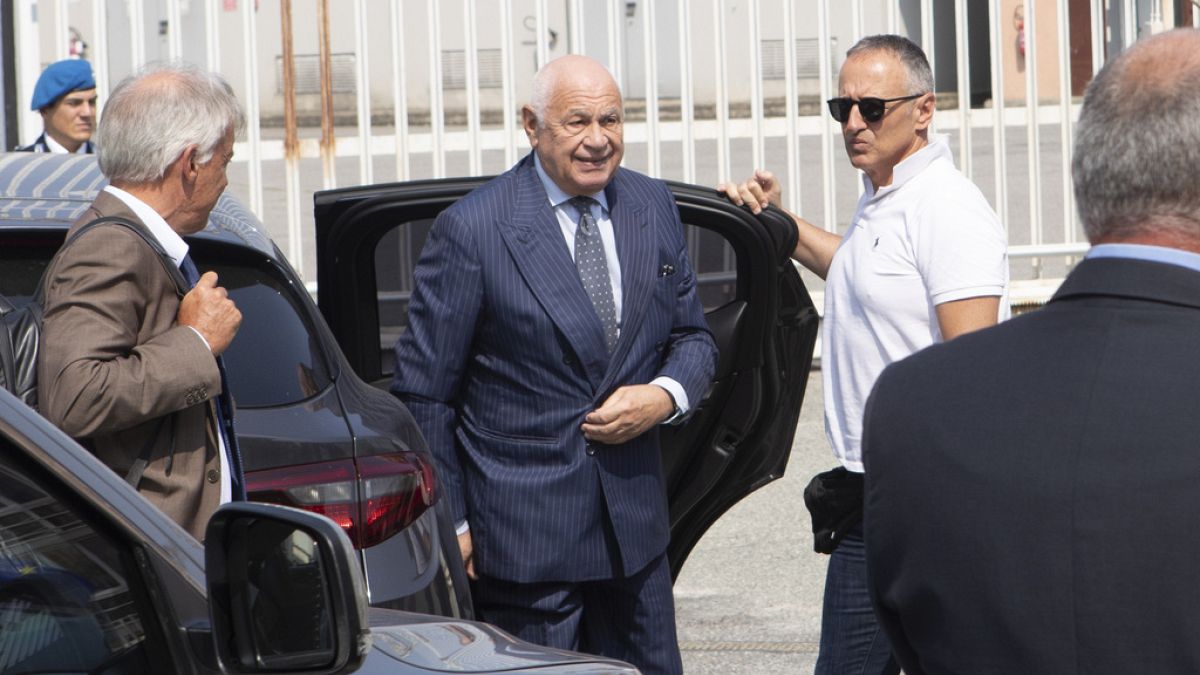Easy does it — ECB can keep cutting gradually in December, says Croatia’s Vujčić
Political uncertainty stalking the eurozone, however, is best navigated with a meeting by meeting approach.
ZAGREB — The European Central Bank is on track to keep cutting rates at a gradual pace rather than opting for a larger move when it meets next week, according to Croatian central bank chief Boris Vujčić.
In an interview with POLITICO on Monday, the ECB Governing Council member, who is usually judged to be a moderate hawk, also downplayed the possibility of any major surprises. “I don’t think that it will be such a difficult decision in December,” he said.
The ECB is expected to reduce interest rates for a fourth time this year at its Dec. 12 meeting over concerns of a pronounced deterioration in the mood of European businesses, according to recent data. But markets have been torn on the size of the move, pricing in a 20 percent chance that the ECB could opt for a 0.5 percentage point cut.
Vujčić offered the strongest rebuttal yet that there could be a serious debate among Governing Council members over the rationale for a jumbo cut. “I saw the Governing Council being on the same page and I don’t really believe that it will be much different in the coming meetings,” he said.
The ECB’s key deposit rate currently stands at 3.25 percent, following three 0.25 percentage points cuts this year.
Vujčić, nonetheless, conceded that things could become more contentious as ECB policy gets more accommodative.
Thus far, most economic data released since the ECB’s last policy decision in October has faithfully tracked the Bank’s official forecasts. The exception, however, has been eurozone inflation, which accelerated in November to 2.3 percent on the year. Vujčić put this down to the impact of high energy prices of the previous years falling out of the calculation.
Addressing services inflation, which remains stubbornly high due to sustained wage growth, Vujčić said he expects the ECB’s new forecasts — which are out next week — to signal a substantial fall for the latter in 2025.
Boosting confidence
A brawl, nonetheless, is brewing within the ECB over how best to steer longer-term policy expectations in uncertain political times. Providing more concrete guidance would, in theory, help to underpin consumer and business confidence. But while doing so is supported by Governing Council members Fabio Panetta and Olli Rehn, not everyone is convinced by the idea.
Thus far, the ECB has navigated the exceptionally uncertain environment since 2022 by taking a “meeting-by-meeting approach,” with little to no guidance given to markets. This approach has served policymakers well and remains the appropriate option, according to Vujčić.
“When the road is slippery, you take small steps and this is what we are doing,” he said.
Part of the uncertainty, however, relates to the election of Donald Trump as United States president and the scale of tariffs he may impose on Europe once in office. To be effective, Vujčić warned, monetary policy will need to adjust around U.S. trade policy, but also the EU response tactic.
For Vujčić, the real problem from an economic standpoint is “a trade war where you have different steps of retaliation.” This, he said, was most likely to result in higher inflationary pressures.
Putting your fiscal house in order
Another potential source of instability for the eurozone relates to the political deadlock over the French budget and its capacity to bring down the highly divided government of Michel Barnier. French 10-year borrowing costs widened to a 12-year record of 0.88 percentage points over those of Germany on Monday in a sign of growing market consternation.
While Vujčić would not be drawn on the possibility of the ECB intervening directly in the market to counter any instability, he emphasized fiscal discipline across the continent needed to be taken seriously.
The key concern, nonetheless, remains that a bond market crisis could put pressure on the ECB to activate its so-called Transmission Protection Instrument. This facility was unveiled in 2022 to shield eurozone countries from unwarranted speculative attacks at a time when the ECB was raising interest rates aggressively. But it has not yet been used in practice.
Vujčić declined to comment on how likely it was that might change given the circumstances in France, preferring to address the source of the troubles directly.
“I would think that it’s of critical importance that the fiscal house is put in order in a way that it does not provoke in the future an incident in the sovereign bond markets,” he said.
A similar point was emphasized by the ECB’s Financial Stability Review last month when it highlighted that strained public finances coupled with low growth potential risk reigniting market concerns over sovereign debt sustainability.
What's Your Reaction?



















































